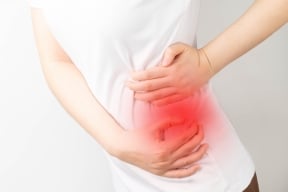Understanding the Gallbladder
Medically Reviewed by John W. Sonfield, MD
McLeod General Surgeon Dr. John Sonfield with Pee Dee Surgical Group explains what the gallbladder does and the common issues that can be associated with it.
The gallbladder might not be the first thing we think of when we think of vital organs, but it plays an important role in the body’s digestive process, according to Dr. John Sonfield, McLeod General Surgeon with Pee Dee Surgical Group.
The Role of the Gallbladder
The gallbladder stores bile that is produced by the liver. Bile is the digestive fluid that helps break down fats so they can be absorbed by the body. When we consume fatty foods, the gallbladder releases bile into the intestines to assist in the digestive process.
In simple terms, the gallbladder acts as a storage unit, ensuring the body has the bile it needs to digest fats properly.
Common Gallbladder Issues
One of the most common problem people experience with their gallbladder is the formation of gallstones. These stones can block the gallbladder’s ability to release bile, resulting in painful symptoms.
Dr. Sonfield explains, “It is typically a crampy, dull pain that lasts longer than 30 minutes to an hour.” This pain may also occur without gallstones if the gallbladder becomes dysfunctional over time. Other symptoms often include nausea and indigestion.
If gallstones move out of the gallbladder and block bile ducts, it can lead to a more serious condition, such as pancreatitis.
Treatment Options
There is no single test that clearly determines whether gallbladder removal is necessary, making it difficult to diagnose. The key to diagnosis lies in the patient’s medical history and symptoms.
Once a diagnosis is made, gallbladder removal surgery (cholecystectomy) is the most common treatment option. Around 80 to 90 percent of patients experience relief after surgery.
What to Expect After Surgery
Most gallbladder surgeries today are minimally invasive and are typically performed laparoscopically through small incisions. Most patients can go home the same day.
After the procedure, some digestive issues, especially diarrhea, are common but usually resolve within a few weeks.
Dietary adjustments are often necessary post-surgery, particularly avoiding high-fat foods initially. Over time, most patients can return to their regular diets without long-term restrictions.
Unfortunately, there is no guaranteed way to prevent gallbladder problems. Gallstones are often linked to the Western diet and other factors such as age and gender—women over 40 are more likely to develop gallstones. While maintaining a healthy diet and exercise routine is always beneficial, there are no specific lifestyle changes that can completely prevent gallbladder issues.
Find a surgeon near you.
-
McLEOD REGIONAL MEDICAL CENTER FLORENCE
843-777-2000 -
McLEOD DARLINGTON
843-777-1100 -
McLEOD DILLON
843-774-4111 -
McLEOD LORIS
843-716-7000 -
McLEOD SEACOAST
843-390-8100 -
McLEOD CHERAW
843-537-7881 -
McLEOD CLARENDON
803-433-3000



-
McLEOD REGIONAL MEDICAL CENTER FLORENCE
843-777-2000 -
McLEOD DARLINGTON
843-777-1100 -
McLEOD DILLON
843-774-4111 -
McLEOD LORIS
843-716-7000 -
McLEOD SEACOAST
843-390-8100 -
McLEOD CHERAW
843-537-7881 -
McLEOD CLARENDON
803-433-3000
 Find a Doctor
Find a Doctor  Locations
Locations  Services
Services 